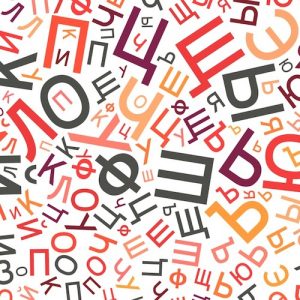“Student is not a container you have to fill but a torch you have to light up”.
Albert Einstein


My name is Irina Fedorov and I am a teacher of a special group for beginners and those English speakers who are on a way to acquiring fluency in Russian.
I grew up, studied, and worked in Moscow. I graduated from a high school with an English focus, where numerous subjects were taught in English. During my studies at university and the School of Cultural Policy, I took part in various projects on the topics of pedagogy, psychology, sociology, and culturology. I worked with American students as a teacher and tutor in the International children’s centre “Artek”.
For some time I have lived in the United States and Canada. In 1995 my family and I moved to Australia.
I have 23 years of teaching experience. I have worked in Russian ethnic schools in Adelaide since 1999 and have been working at the A. Pushkin Russian School since 2008.
In February 2014, I took part in the preparation and conduct of the First International Scientific and Methodological Conference “Russian School. XXI century” in Sydney.
In September of the same year, I participated in the All-Russian (with international participation) scientific and practical conference “Innovative teaching of the Russian language in conditions of multilingualism”, organised by the Russian Patrice Lumumba University of Peoples‘ Friendship (Faculty of the Russian Language – upgrade courses for Russian language teachers) in Moscow.
In October of the same year, I participated in the program of the Festival of Pedagogical Ideas within the framework of the Moscow International Salon of Education with the support of the Ministry of Education and Science of the Russian Federation.
This exciting opportunity was given to me again in 2016. In August, I took part in seminars “Understanding the Importance of Linguistic Diversity” and “Tolerance in Cultural and Linguistic Diversity” at the University of South Australia, presented by Professor François Grinch from the University of Geneva.
In September, I was the representative of our state at the Russian Conference of Russian Language Teachers, held in Sydney with the support of the Ministry of Education of New South Wales. Finally, in October, I took part in the preparation and conduct of the Second International Scientific and Methodological Conference “Russian School. XXI century” in Melbourne.
Education and qualifications
Moscow University of Electronics and Mathematics (Department of Higher School of Economics) – 1991.
Moscow School of Cultural Policy – 1995
Training Centre for Vocational Education and Training of South Australia – 2005
Lomonosov Moscow University (School for teachers of Russian as a foreign language) – 2013
Translator (English to Russian), teacher, tutor, Teacher of “Russian as a foreign language”.
GROUP FIFTEEN. Russian as Foreign Language 2023
The primary purpose of teaching group 15 of English-speaking students is the formation and further development of their ability to formulate their thoughts in Russian, understand oral and written Russian speech, and use it in communication. I will do everything to make learning fun and interesting so the students feel excited to learn Russian.
The best knowledge and skills are acquired through the use of really interesting and enthralling creative tasks and educational games. Playing language games is one of the best means of developing and gaining new information. Educational language games not only give additional knowledge but also develop a whole range of diverse abilities and are a unique opportunity for creative expression. Intellectual games allow students to demonstrate their knowledge and skills, show ingenuity and resourcefulness, and have fun while learning a new language.
Those students, who have been part of the group, for now, their second or third year, would have already formed some basic knowledge and skills to do with Russian. In 2023, these skills will be further enhanced and new ones acquired, from which students will be able to listen, view, memorise, and analyse a variety of texts in Russian.
Students will continue to:
– learn to recognise and name the letters of the Russian alphabet
– memorise the Russian names of different objects and be able to identify their colors
– learn how to express the actions of animals and emotions of people in Russian
– analyse picture books and create stories to go along with the illustrations in Russian
– remember and consciously use new words, and phrases and learn short poems
We will continue to increase the number of new vocabulary weekly, to train students’ memory, and get acquainted with Russian folk tales and small poems of famous Russian authors.
In the classroom, the use of visual aids, game tasks, and physical activities will continue to be widely used. This should provide every child with many positive emotions, encourage children to take an active part in the work of the lesson and ensure their motivation to learn Russian is preserved and strengthened.
Beginners of the group will learn simple words, small phrases, and short sentences, trained in understanding the Russian phrases addressed to them, and individual words. A variety of games and exercises will help children to develop skills in speaking, understanding, and communication in a Russian-speaking environment.
All the students of the group will be actively involved in various forms of teamwork, which increases the effectiveness of using study time. The elders will help the younger ones in every possible way. Individual tasks will take into account the achieved level and capabilities of each student.
The following materials will be used in the classes: “Preparing for School – preparation for Reading and Writing, part 1″, “Great Album for Speech Development”, “Learning the World Around, Part 1”, “I Learn Sounds and Letters, part 2”, workbooks “Learning Letters”, “Workbook for the Pre-schooler”, “Developing Creative Thinking “, “100 handicrafts for preparation for school”, “Games and exercises for preparing a child for school” and others.